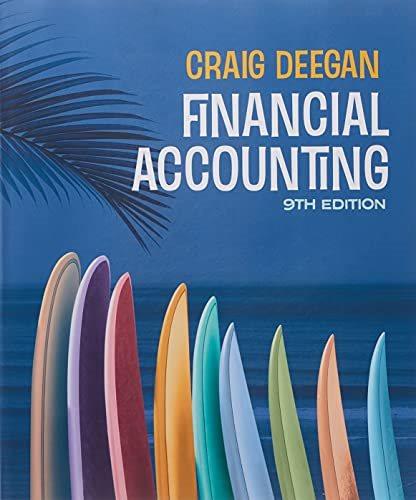An article entitled Parent loan puts Parmalat down $165m by Andrew Fraser, which appeared in The Australian
Question:
An article entitled ‘Parent loan puts Parmalat down $165m’ by Andrew Fraser, which appeared in The Australian on 8 June 2004, made reference to two extraordinary items, which at the time required separate disclosure. It stated:
Parmalat Australia yesterday filed a net loss of $165.8 million, despite the Australian operations showing a healthy profit of $9.2 million. The reason for the difference was two extraordinary items—the local operation wrote off $145 million lent to the parent company via a bond, and $43.9 million lent to non-Australian members of the Parmalat group.
Of the $43.9 million, $32.5 million had been lent to the global Parmalat group—money which will never be recouped as the parent company owes $4 billion, vastly in excess of its assets. The remaining $11.5 million was money spent in starting operations in Thailand, Vietnam and Indonesia, which now will be wound down or sold as what the administrators in Italy call ‘the new Parmalat’.
The $145 million bond was a cost that came about in Parmalat’s original purchase of Pauls, but managing director David Lord said yesterday that ‘under the circumstances, it’s really worth nothing, so we’ve adjusted our books accordingly’. Since 2005, extraordinary items are not to be disclosed separately. Specifically, paragraph 87 of AASB 101 states ‘an entity shall not present any items of income and expense as extraordinary items, in the statement of profit or loss and other comprehensive income or separate income statement (if presented), or in the notes’.
REQUIRED
a. State whether you think this represented an improvement or a backward step for Australian financial reporting. Explain your answer.
b. Pursuant to AASB 101, how would the items of expense referred to in the article be disclosed?
Step by Step Answer:






